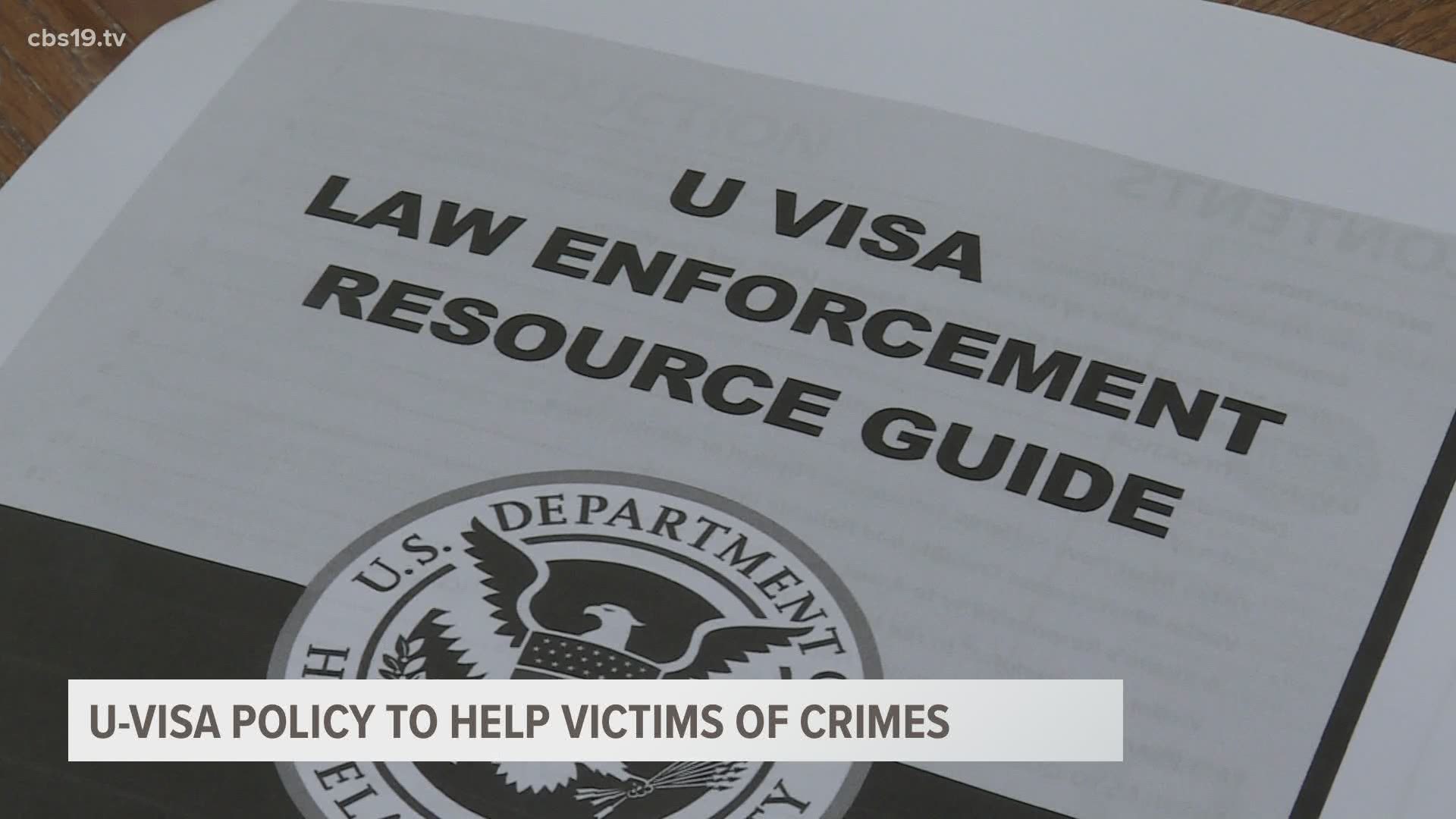SMITH COUNTY, Texas — U-Visa’s were created 20-years ago to help law enforcement with prosecuting violent crimes by gaining the help of victims or witnesses who might otherwise be afraid to report what happened.
“What we don’t want is a victim, undocumented victim to not come forward because they’re afraid they’re going to get deported,” Smith said. “A victim is a victim, a human being is a human being no matter what status, the citizenship they have.”
According to the sheriff he has approved some certifications over the last few years, but he hopes with a written policy to build trust and awareness within the community.
"I think it's very important, more important to see the due processes, served than it is to send people to immigration, back to wherever," he said during the meeting.
Smith understands it might not be popular to implement the policy, but he said he’s doing his best “to be fair with the way we do things here.”
The visa is intended to encourage victims of violent crimes like domestic violence, sexual assault, gangs, etc. to help authorities. Smith said not everyone who reports to his office though will receive the certification or a visa.
"Once they do come forward as a witness, they can make application for a U-visa and all we do is say okay, yes, this fits and I sign off on the certification,” Smith explained. “That doesn't mean they're getting the U-Visa, that means It can go to the next step, which is the immigration.”
After someone reports a crime to his office under the U-Visa policy, Smith said it will take more than 30 days to look things over and process the information.
The U.S. only accepts 10,000 U-Visas a year and Smith said right now there is a 5-year back log.
Dalila Reynoso, a community activist, has been working for the last 3 years to have a written policy put into place. She compares the U-Visa Certification to the Deferred Action for Childhood Arrivals (DACA) immigration policy.
“There is a wait time more than five years during that time,” she said. “It gives them the opportunity to work during that time, it gives them a work permit and to obtain a driver's license or state issue ID. It does not give them any status, so in a sense, it's kind of like a protection just like DACA.”
Reynoso is passionate about the policy because she herself has been a victim as a child and her family was too scared to report it.
"We want folks that are undocumented, to come forward and report these crimes, because that's how we, one way we can keep our community safe," said Reynoso.
People who want to report a crime to the Smith County Sheriff’s Office can contact Vonda Taliaferro, Smith’s administrative assistant, at 903-590-2720 or by writing a letter to 227 North spring Avenue, Tyler, Texas 75702 attention, Vonda Taliaferro.
Reynoso also said people can reach out to her if they have questions, need an interpreter or someone to go with them for support. She can be reached at 903-258-0005 or Dalila.reynoso@texasjailproject.org

